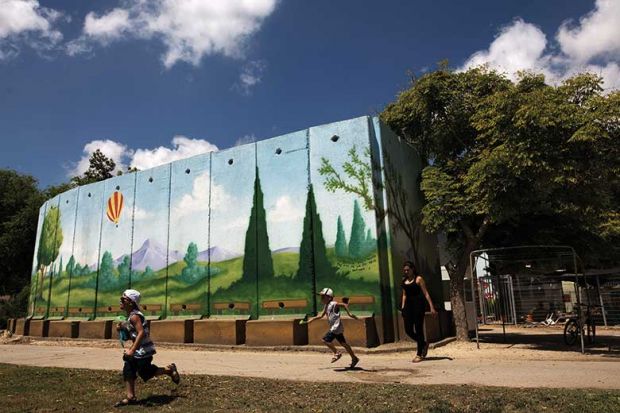Israel is aiming to double its number of international students by 2022, but experts have warned that the country’s negative image around the globe may hinder its efforts to reach this goal.
The Council for Higher Education said that it had approved a NIS435 million (£93 million) budget aimed at attracting 24,000 overseas learners in the country by 2022, compared with 11,000 international students in 2017, an increase of 118 percent.
The council said that it would provide NIS100 million for postdoctoral fellowships, and that it would spend another NIS100 million supporting universities to develop their infrastructure and programmes, including English-language courses. Funding will also go towards new scholarship programmes.
A spokesman for the organisation described the initiative as “the first time such a large effort has been made to open up Israeli higher education to international students”, arguing that it would help turn Israel into a “beacon of academia” and help it build diplomatic ties with foreign countries.
However, Fawaz Gerges, professor of international relations at the London School of Economics, said that it was “unlikely” Israel would be able to attract a large number of international students “given the volatile security situation between Israel and its Palestinian and Arab neighbours, as well as the international boycott movement which has gained in strength and momentum worldwide”.
“I doubt whether Israel can overcome the widespread global negative perception as long as it maintains its colonial settlements of Palestinian lands and its unwillingness to allow millions of Palestinians self-determination,” he said.
Philip Altbach, founding director of the Center for International Higher Education at Boston College, agreed that the instability of the region – despite the fact that Israel itself is fairly safe – and the boycotts of the country would affect its ability to reach its goals.
Israel’s policies towards the Palestinians and the settlements in particular have received more and more negative press around the world, he said. This is likely to affect students from Europe and North America in particular, he added.
However, Professor Altbach said that the selling point for study in Israel was that the higher education system was well regarded and its universities were seen as high quality.
“Certainly if you dangle a carrot in front of people, especially from developing countries, for strong universities and a strong system, it can have some positive impact,” he said. “It’s a soft power move by the Israelis.”
In a statement, the Israeli council admitted that the perceived security situation could deter some students from studying in Israel, but claimed that “the main obstacle is largely because most courses in Israeli universities are only offered in Hebrew”. The funding would go towards removing these kinds of barriers, it said.
Register to continue
Why register?
- Registration is free and only takes a moment
- Once registered, you can read 3 articles a month
- Sign up for our newsletter
Subscribe
Or subscribe for unlimited access to:
- Unlimited access to news, views, insights & reviews
- Digital editions
- Digital access to THE’s university and college rankings analysis
Already registered or a current subscriber?








